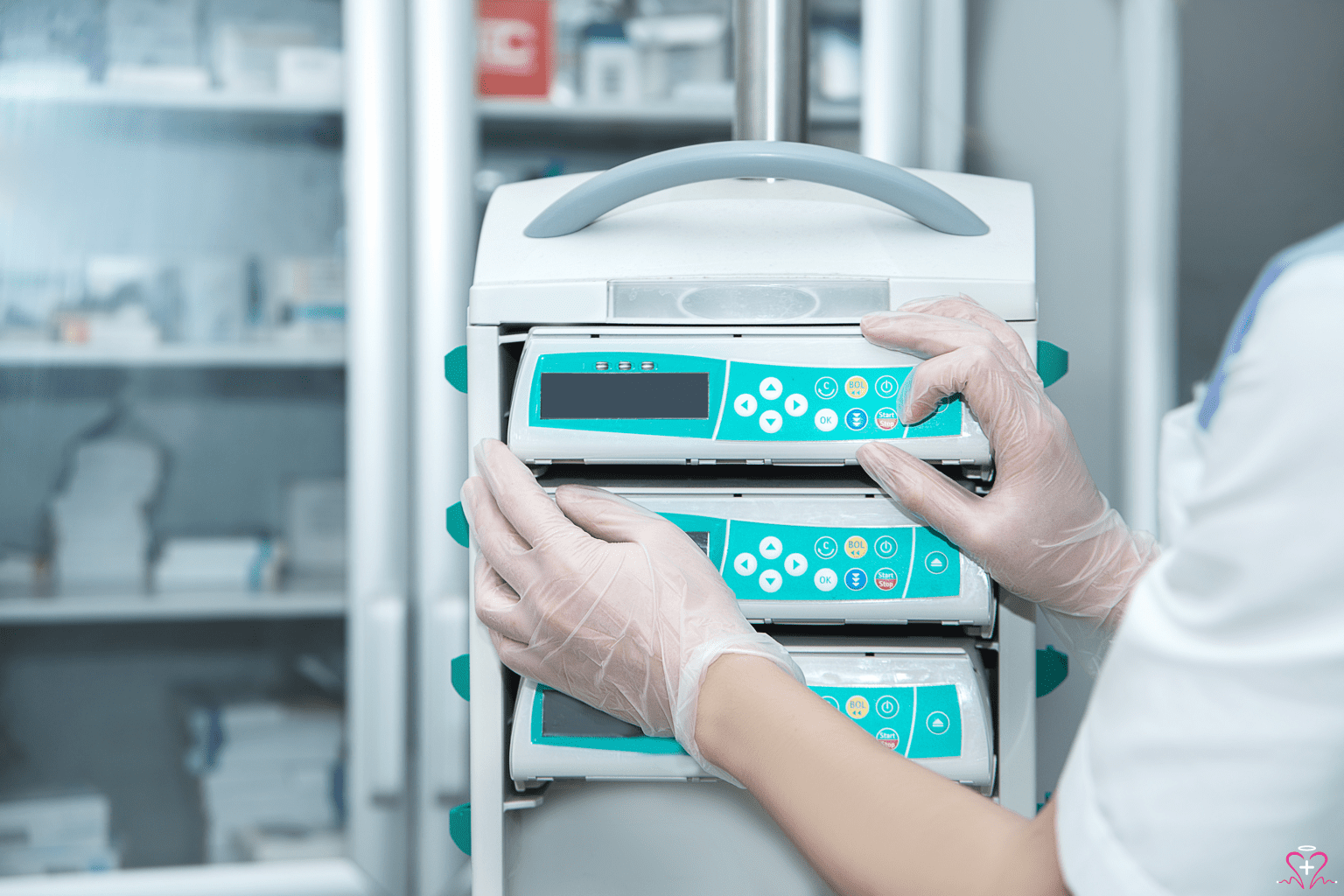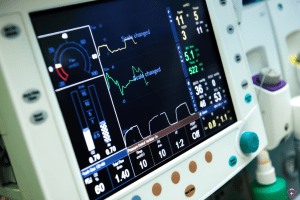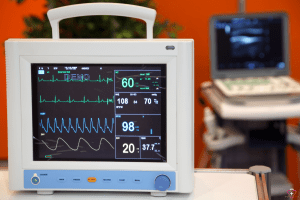What Is an Infusion Pump?
An infusion pump delivers fluids, such as antibiotics, pain relievers, chemotherapy drugs, and nutrients, like total parenteral nutrition (TPN), into a patient’s body in a controlled manner. Typically, this process happens through intravenous (IV) or subcutaneous (under the skin) administration. Hospitals, clinics, and other healthcare facilities widely use infusion pumps to administer various fluids, including medications, blood products, and nutrients. This article will explore the different types of infusion pumps, their uses, and their benefits.
Importance of Infusion Pumps in Modern Healthcare
Infusion pumps have revolutionized how healthcare providers deliver drugs and nutrients to patients. The precision and control offered by these devices, ensuring accurate drug delivery, have significantly improved patient care standards. As medical treatments have become more complex, the role of infusion pumps has expanded, making them indispensable in various medical settings.
Advancing Patient Safety
With their advanced programming and safety features, infusion pumps contribute significantly to patient safety. They can prevent overdoses and underdoses, which is crucial when dealing with potent medications where precision is paramount. Safety features such as alarm systems, occlusion detection, and drug library databases further enhance their reliability and safety.
Enhancing Treatment Efficacy
The efficacy of specific treatments, particularly chemotherapy and pain management, relies on the consistent and accurate delivery of drugs. This ensures the medication is delivered at the correct rate and volume, which is essential for the desired therapeutic effect.
Schedule a Free ConsultationAccommodating Complex Protocols
As medical protocols grow increasingly complex, the need for devices that can keep pace with the sophisticated requirements also increases. Infusion pumps can handle complex dosing regimens that are impractical to administer manually.
Mechanical to Electronic Transition
Infusion pumps initially delivered fluids using mechanical mechanisms. However, the shift to electronic pumps has allowed for greater accuracy, programmability, and monitoring capabilities.
Smart Pump Integration
Smart pumps, a type of infusion pump equipped with software, are designed to interface with electronic medical records (EMRs) and pharmacy information systems. This integration facilitates better communication, reduces errors, and enables healthcare professionals to monitor infusion therapy remotely. The software in smart pumps can also provide real-time data on drug delivery, helping to ensure the safety and efficacy of the treatment.
Future of Infusion Pump Technology
Looking ahead, we can anticipate infusion pumps to evolve into even more sophisticated devices with advancements in connectivity. For example, artificial intelligence and patient-specific programming. These innovations will further personalize and enhance patient care, sparking excitement for the future of medical technology.
Types of Infusion Pumps
There are several different types of infusion pumps available on the market, each with its unique features and benefits:
IV Infusion Pumps
IV infusion pumps are the most common type of infusion pump. They deliver fluids directly into a patient’s bloodstream. These pumps are typically used in hospitals and other healthcare facilities to administer medications like antibiotics or pain relievers. Blood products like plasma or platelets and fluids like saline or dextrose solutions.
Hospital Use
IV infusion pumps are essential for continuous drug administration in hospitals. Especially in critical care areas where patients require constant and precise medication dosing.
Outpatient Care
IV infusion pumps have also found a place in outpatient care, where they enable the administration of treatments like chemotherapy. And hydration therapy in a more comfortable setting outside of the traditional hospital environment.
Specialty Infusion Pumps
Specialty IV pumps, such as those designed for neonatal care, offer tailored features like exact flow rates suitable for the tiniest patients, demonstrating the versatility of this type of infusion pump.
Syringe Pumps
Syringe pumps, or infusion syringe pumps, deliver small volumes of medication or fluids into a patient’s body. They are commonly used in critical care settings, such as intensive care units (ICUs), to deliver precise doses of medication to patients.
Critical Care Applications
In critical care, the precision of syringe pumps is invaluable for administering life-saving drugs requiring exact dosing, such as vasopressors or anticoagulants.
Research and Laboratory Use
Syringe pumps are also used extensively in research and laboratory settings for experiments that require the precise delivery of substances over a controlled period.
Pediatric Use
In pediatric care, syringe pumps’ small volume capability makes them ideal for accurately delivering medication to infants and young children.
Enteral Infusion Pumps
Enteral infusion pumps are used to deliver nutrients directly into a patient’s digestive tract. These pumps are commonly used in patients who are unable to take food or drink by mouth, such as those who are on a ventilator or have a feeding tube.
Feeding Tube Nutrition
Patients with feeding tubes rely on enteral infusion pumps to receive their daily nutrition. These pumps allow for the slow and steady delivery of food directly to the stomach or intestines.
Home Care Adaptation
Enteral pumps have been adapted for home use, enabling patients with chronic conditions or those recovering from surgery to receive the necessary nutrients while maintaining independence.
Specialty Nutrition Programs
These pumps can be programmed with specialty nutrition programs. These programs are designed for patients with specific dietary needs, such as certain metabolic disorders or gastrointestinal conditions. They provide a tailored approach to nutrition delivery, ensuring that patients receive the right balance of nutrients for their condition.
Insulin Pumps
Insulin pumps are used to deliver insulin to patients with diabetes. These pumps are designed to mimic the function of the pancreas by continuously delivering insulin into the body at a steady rate.
Continuous Glucose Monitoring Compatibility
Many modern insulin pumps are compatible with continuous glucose monitoring systems, providing a comprehensive approach to diabetes management.
Programmable Basal Rates
Insulin pumps allow for the setting of programmable basal rates to match the patient’s varying insulin needs throughout the day and night, offering a level of customization that injections can’t achieve.
Lifestyle Flexibility
With their discrete and portable design, insulin pumps offer people with diabetes greater flexibility in their daily activities and diet without compromising their glucose control.
Pain Management
Implantable pumps can provide a continuous flow of pain medication, such as morphine, directly to the spinal fluid, offering significant pain relief without the systemic side effects of oral medications.
Targeted Drug Delivery
For cancer patients, implantable pumps can deliver chemotherapy drugs directly to the tumor site, potentially reducing the side effects associated with systemic chemotherapy.
Long-term Therapy
These pumps are designed for long-term therapy and can be refilled with medication without additional surgery, making them a convenient option for ongoing treatment.
Schedule a Free ConsultationBenefits of Using Infusion Pumps
Infusion pumps offer several benefits over traditional methods of delivering fluids, such as manual administration or gravity infusion. Some of the key benefits of using an infusion pump include:
Precision and Control
Infusion pumps provide unparalleled precision and control over the delivery of fluids, which is particularly important for medications with narrow therapeutic windows or patients with complex dosing requirements.
Minimizing Human Error
Automating fluid delivery with infusion pumps minimizes the human error associated with manual administration, leading to more accurate dosing and improved patient outcomes.
Tailored Drug Delivery Profiles
Advanced infusion pumps can be programmed with tailored drug delivery profiles, allowing variable infusion rates to match circadian rhythms or coincide with other treatment regimens.
Real-time Adjustments
Healthcare providers can adjust the infusion rate in real time based on patient response, which is impossible with manual administration methods.
Enhanced Patient Comfort and Mobility
Infusion pumps enhance patient comfort by delivering fluids at a steady and controlled rate. Reducing the discomfort associated with bolus injections. They also allow for greater patient mobility, as many are portable and can be carried by the patient.
Reduced Pain and Inflammation
Infusion pumps can help reduce pain and inflammation. Associated with repeated injections or the irritation of IV sites by providing a consistent flow of medication.
Ambulatory Options
Portable and ambulatory pump options enable patients to continue their daily activities, including work and exercise while receiving infusion therapy.
Home Infusion Therapy
Infusion pumps enable home infusion therapy. This allows patients to receive treatment in the comfort of their homes. It can improve their overall quality of life.
Safety and Monitoring Enhancements
Infusion pumps have safety features and monitoring capabilities that can prevent complications and ensure the safe delivery of medications and nutrients.
Alarm Systems
Modern infusion pumps have built-in alarm systems that alert healthcare providers to potential issues such as occlusions, air in the line, or low batteries, helping to prevent adverse events.
Drug Libraries and Error Reduction Software
Many infusion pumps include drug libraries and error-reduction software that guide healthcare providers in setting up infusions and reduce the risk of medication errors.
Infusion Data Logging
Infusion pumps can log infusion data, which can be reviewed to monitor compliance with prescribed therapy and identify any potential issues with the infusion process.
Increased Efficiency in Healthcare Delivery
With the ability to deliver fluids faster than manual administration and the reduced time spent setting up and monitoring infusions, healthcare professionals can effectively care for more patients.
Streamlining Workflow
Infusion pumps streamline the workflow for nurses and other healthcare providers by automating the infusion process, freeing them to focus on different aspects of patient care.
Cost-Effectiveness
While the upfront cost of infusion pumps may be significant, their ability to reduce medication errors, decrease nursing time, and improve patient outcomes can lead to long-term cost savings for healthcare facilities.
Antibiotic Therapy
Infusion pumps can deliver antibiotics at the required intervals and dosages for patients with severe infections, ensuring effective treatment and the prevention of antibiotic resistance.
Analgesia Management
Infusion pumps manage pain by administering analgesics, providing patients with relief while minimizing the cognitive effects often associated with systemic pain medications.
Oncology Treatments
In oncology, infusion pumps are critical for administering chemotherapy drugs. They allow for the precise control required to manage the delicate balance between efficacy and toxicity.
Nutrient Delivery
Infusion pumps also deliver nutrients, such as total parenteral nutrition (TPN), to patients who cannot receive them through food or drink. This is commonly seen in patients with severe burns or those undergoing chemotherapy.
Total Parenteral Nutrition (TPN)
TPN is a life-sustaining therapy for patients with gastrointestinal disorders who cannot digest or absorb nutrients. Infusion pumps enable delivering the complex mixture of nutrients required for these patients.
Specialized Nutrition Formulations
Infusion pumps can deliver specialized formulations for patients with specific nutritional needs, including tailored macronutrient ratios, vitamins, or minerals.
Hydration Therapy
Patients dehydrated due to illness or surgery can receive precise amounts of fluids through infusion pumps to restore and maintain proper hydration levels.









